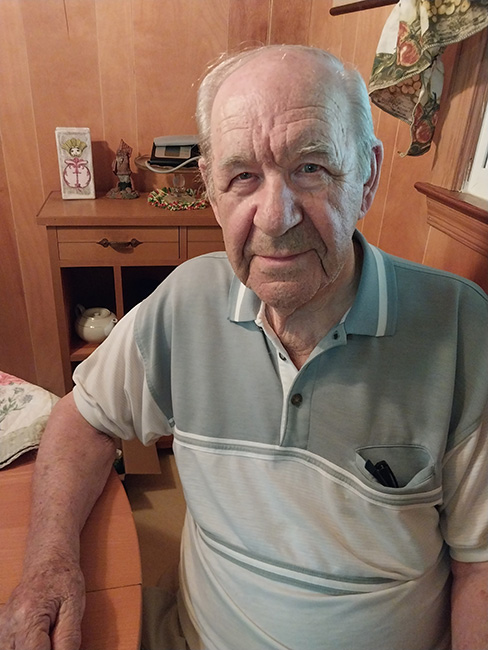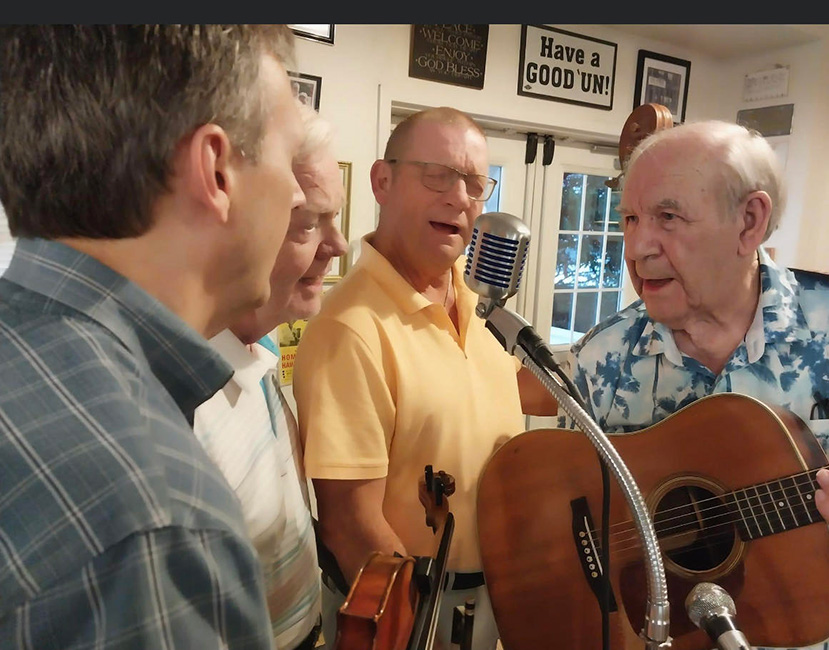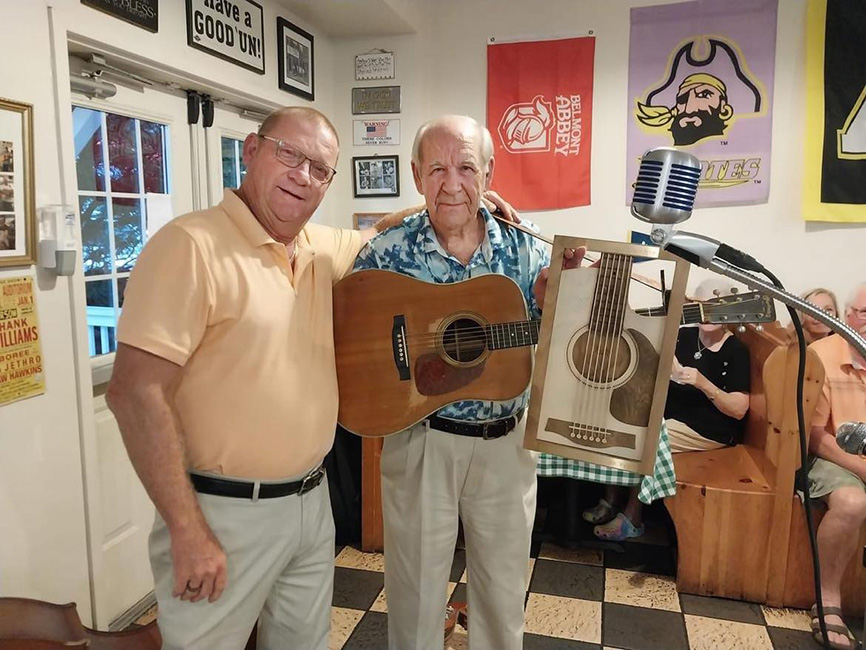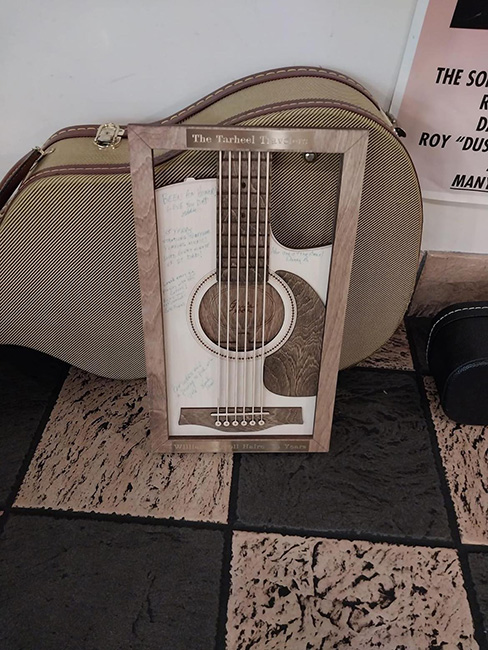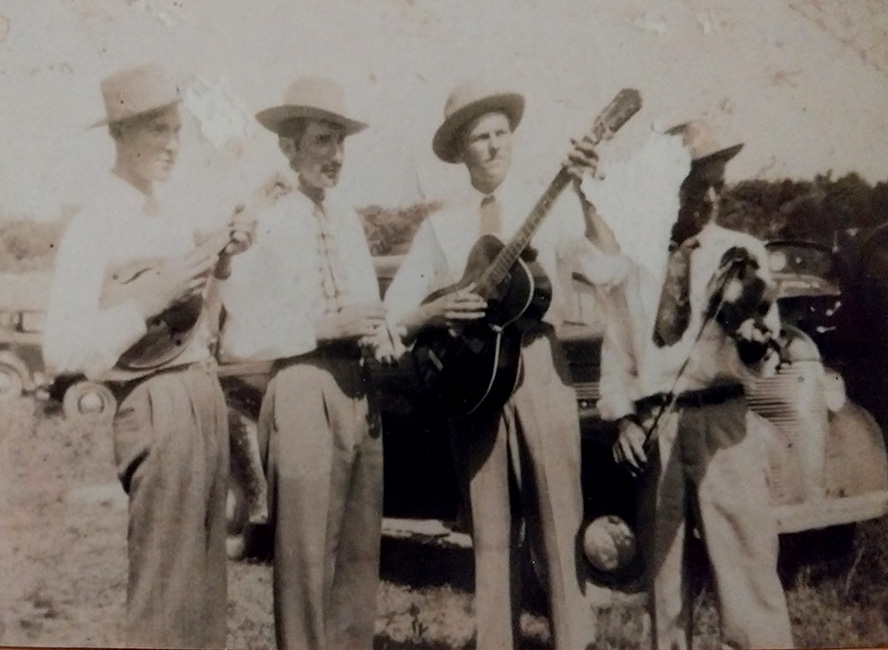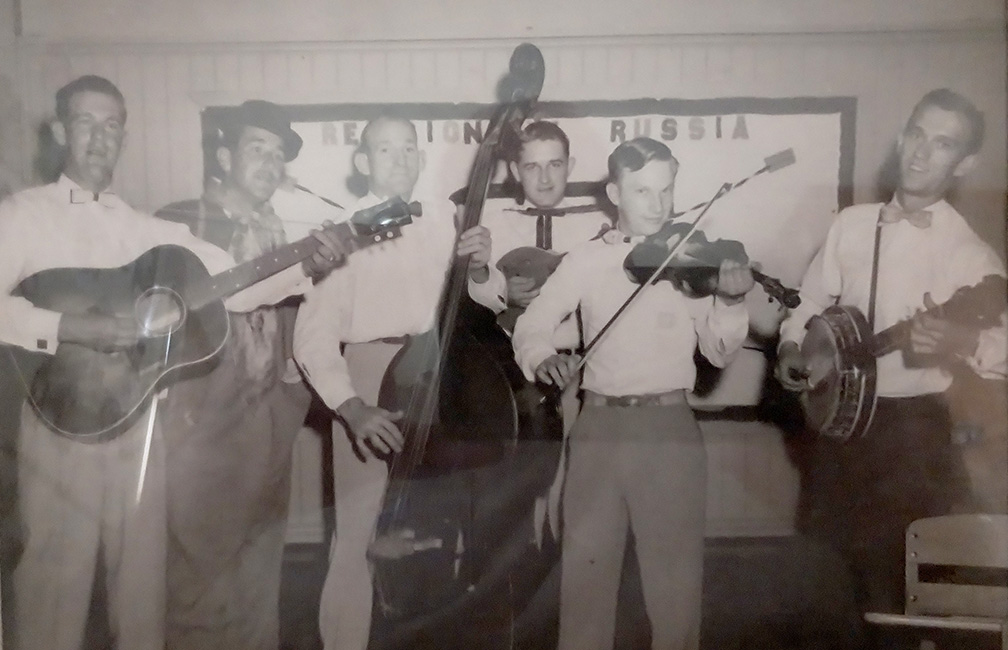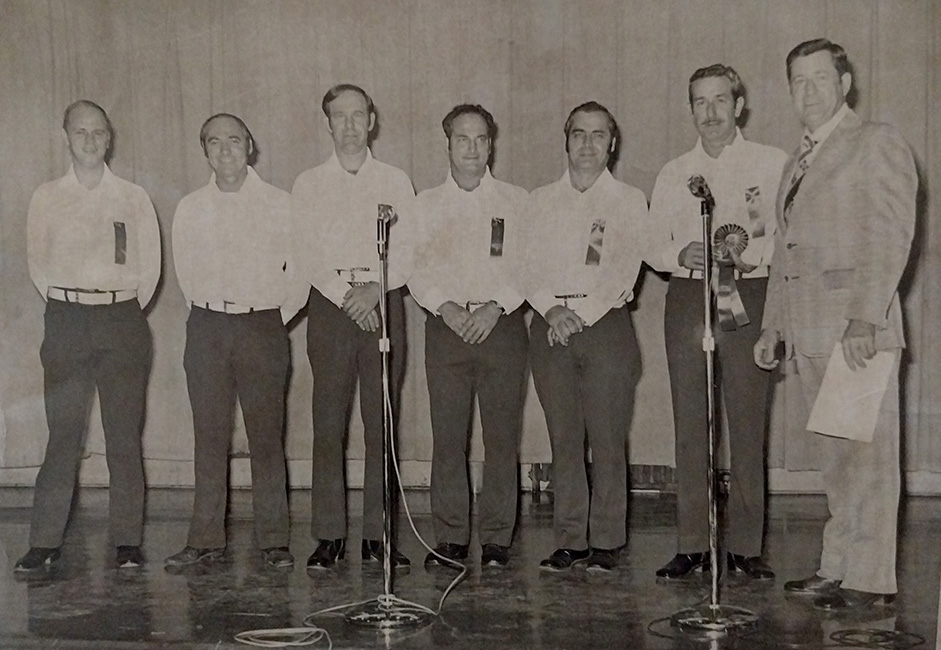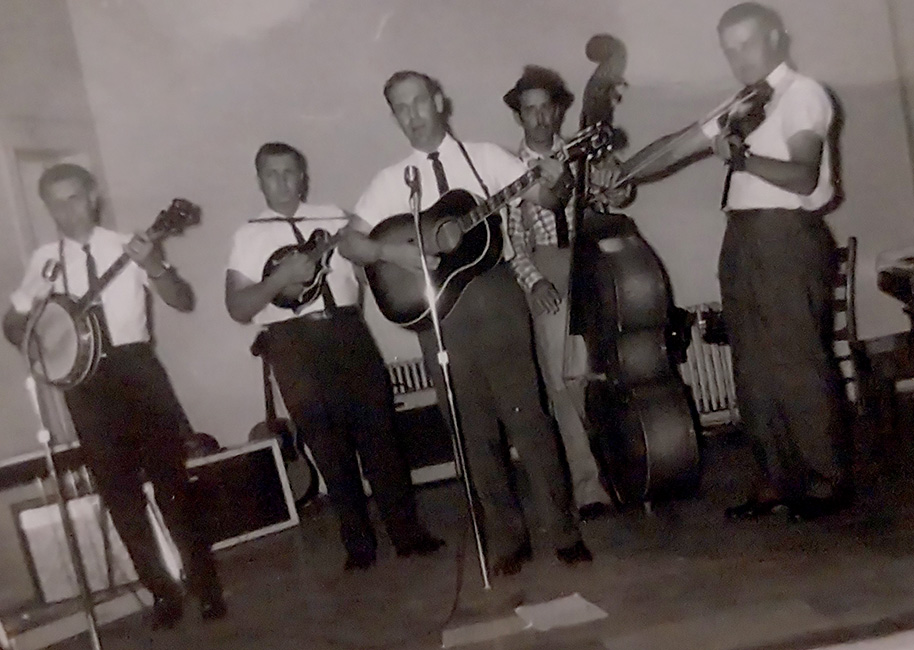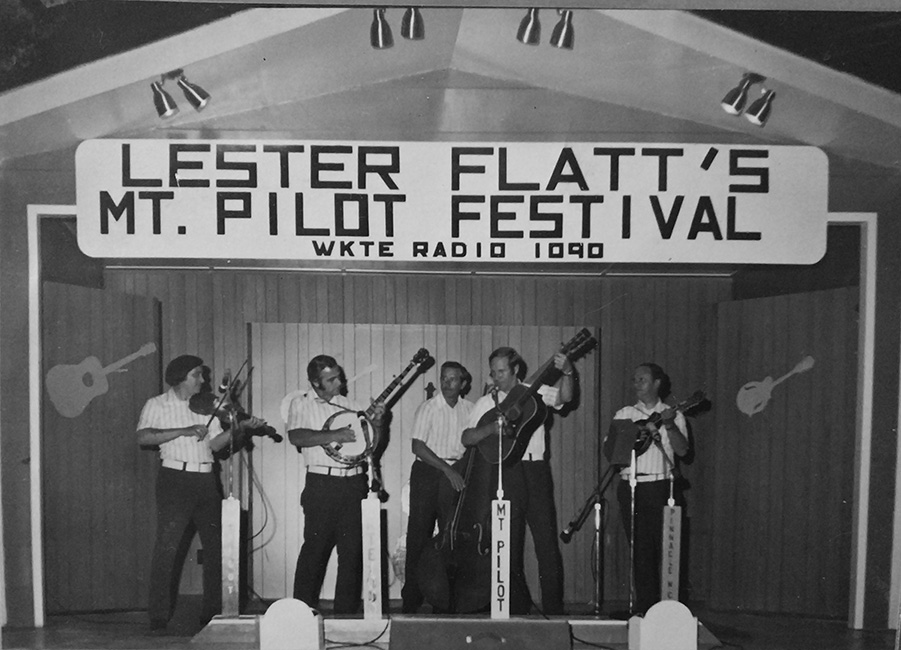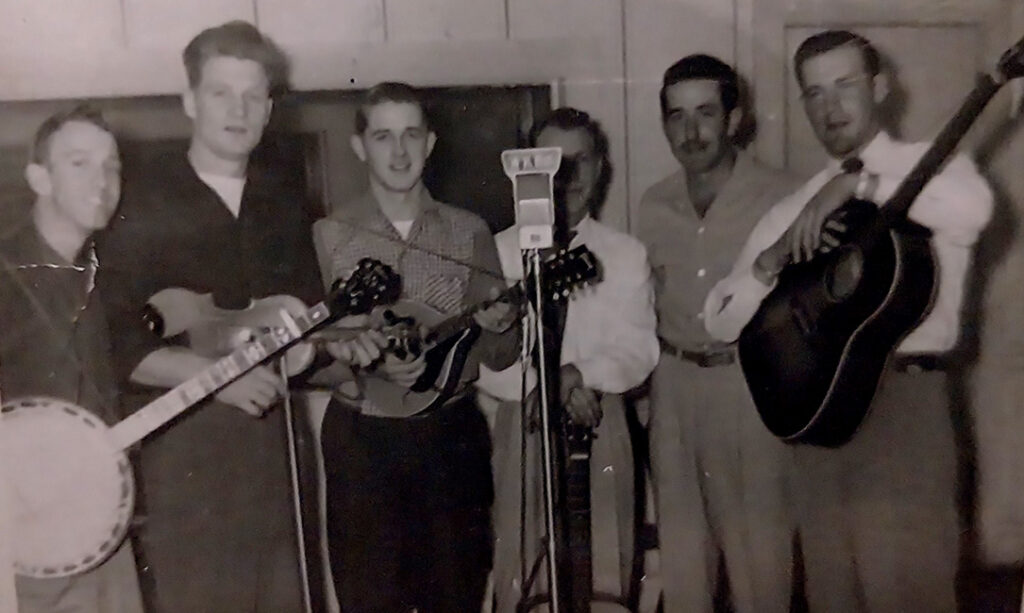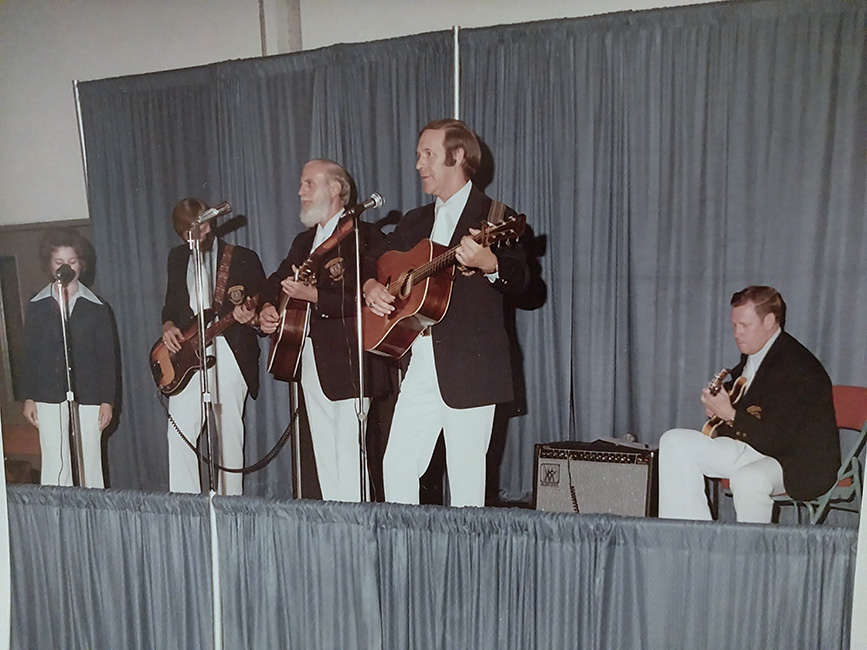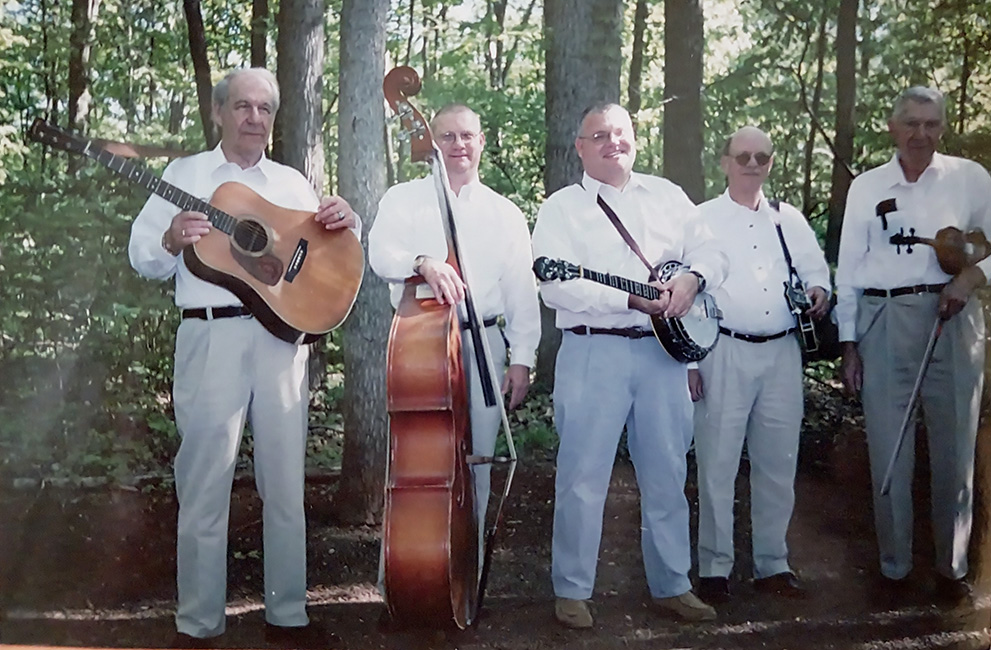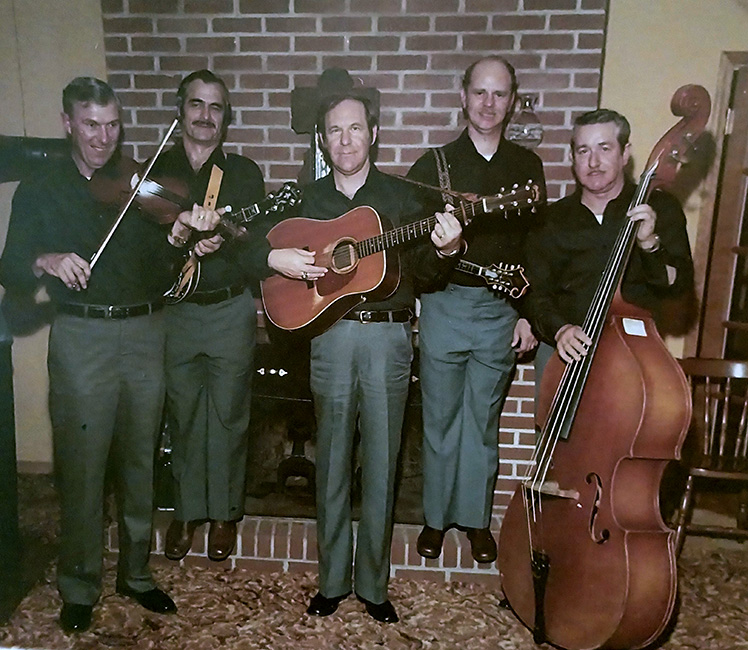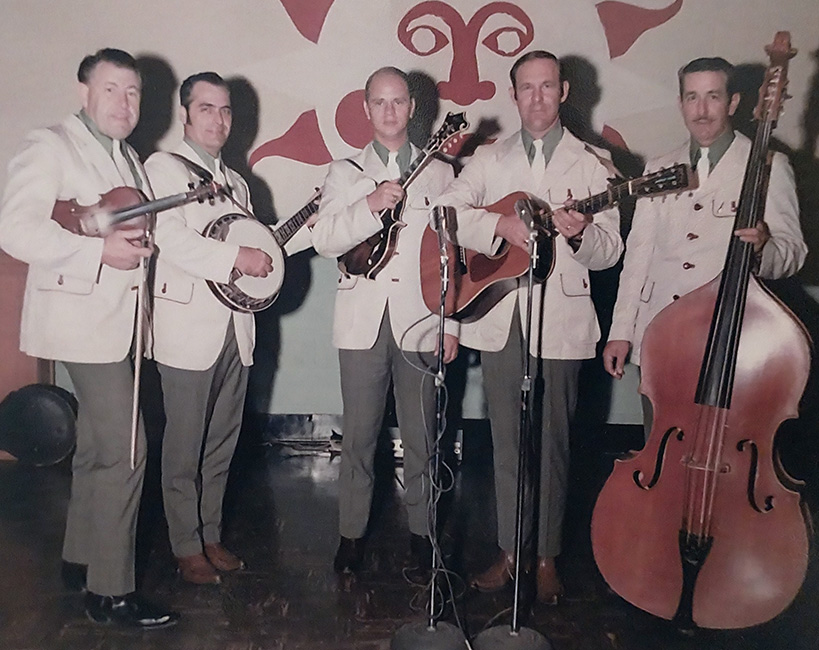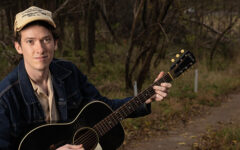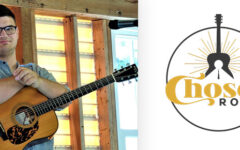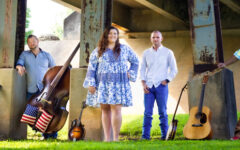
91-year-old North Carolina musician Carroll Haire has decided to step away from the microphone. The lead guitarist played his last show with his band, the Tarheel Travelers, this past Saturday night, September 9, at Prissy Polly’s BBQ in Kernersville, NC. He has been part of the band since 1964. Of the original configuration, Haire is the sole surviving member. Gone on are fiddler Tiny Pruitt, banjoist Jim Brooks, and Carroll’s brother, Rector, who played bass. Other members throughout the years have included, Wayne Hauser, Danny Bowers, and the late LW Lambert, all picking banjo, with Keith Dunn and the late Carl Joyner on fiddle.
Carroll explained, “We’ve been playing with Danny for about 30 years. My brother gave my son, Eddie, his bass (a 1948 Kay). My son still plays that bass.”
Current members of the Tarheel Travelers with Carroll consisted of Ed Haire on bass, Bowers on banjo, Dunn on fiddle, and Jeff Foxall on mandolin. The band presented their retiring band leader with a guitar plaque that the entire band had signed.
Bowers shared, “Carroll was really surprised and the crowd gave him a standing ovation at the presentation. It was the ‘high note’ (no pun intended) of the evening.”
The longtime performer shared a little personal history.
“I started playing when I was nine years old. I began playing for square dances in Ashe County (NC) when I was 13, just me and a fiddle player.”
Haire has many fond memories, but one had particular significance. It involved a band competition run by the late Carl Story, known as the “Father of Bluegrass Gospel.”
“The one I remember the most is when we won a contest in 1953. The winner got to play the Tennessee Barn Dance on a Saturday night. Back then the Tennessee Barn Dance in Knoxville was a pretty big deal. It was kind of a stepping stone to the Grand Ole Opry. That has stood out in my mind.
Another was Farm and Fun Time in Bristol, TN, from 12:00-2:00 p.m. (on WCYB Radio program). They had Jim & Jesse, the Stanley Brothers, Flatt & Scruggs, and Mac Wiseman. They were all on there. There were bands there that went on to be real people (big-name artists). They didn’t pay you to play (on the radio). They’d book you for six nights a week (paying gigs), and you’d play two fifteen-minute shows. You went to schools and courthouses (to perform). It’d work on you, but if that was the life you wanted to live, that was a good place to do it.
We got to play that one day. After we finished playing, the manager of the station asked if we’d be interested in going to work there. I had just got out of the service. We weren’t prepared for that because we had jobs, and a couple of the band members were still in high school.”
Haire considered the offer a real honor, but that was not the road he chose. Haire devoted his life to law enforcement, and worked as a Winston-Salem police officer for 27 years. Prior to that, he served four years with the North Carolina State Highway Patrol, and two years as an MP in the US Army.
“That about took up my working career!” he reflected.
“I never planned on trying to be an entertainer for a living. I always wanted to be a police officer.”
Playing bluegrass part time, Haire found alternate avenues to share his talent.
“When I was at the police department, the chief of police knew I could play and he wanted to get a band together. I found some guys in the department that could play country music. We got together and did pretty good, so we called ourselves the Blue Knights. We played for department things like convention centers. I enjoyed that.”
Though not a traveling entertainer, Haire did play with some impressive professional musicians such as Jim Shumate and Benny Martin.
“They were two of the best bluegrass fiddlers as they’ve ever been. It was an honor to play shows with them. I’ve played music semi-professionally for 75 years. I worked it out where I could enjoy playing some, and do my law enforcement too.”
When asked why the former police officer is leaving a hobby he has loved so dearly, Haire simply replied, “Age. I’m laying it down. We don’t play that much anymore. As long as we were playing regular, I could handle it, but I can’t do it much anymore. I can’t remember the words to songs. Your mind is not as agile at 91 as it was when you’re 35. I’m in pretty good shape, but age has its way of working on you.”
Haire maintains great respect for the bluegrass legends that blazed the trail for him and the many musicians who enjoy performing bluegrass music. He is grateful for all the years he has been able to pick his 1958 D-28 Martin guitar.
Banjoist Bowers reflected on Haire’s seven-decade career.
“Carroll knows how bluegrass music should be played. He is very traditional, but would play just about any song as long as it sounded ‘bluegrassy.’ He is also a good lead singer and easy to put harmony parts with. He is one of the finest people I’ve ever been privileged to know, on and off the stage.”
We wish Carroll joy and continued good health in his retirement. He has definitely made his mark on North Carolina bluegrass.
